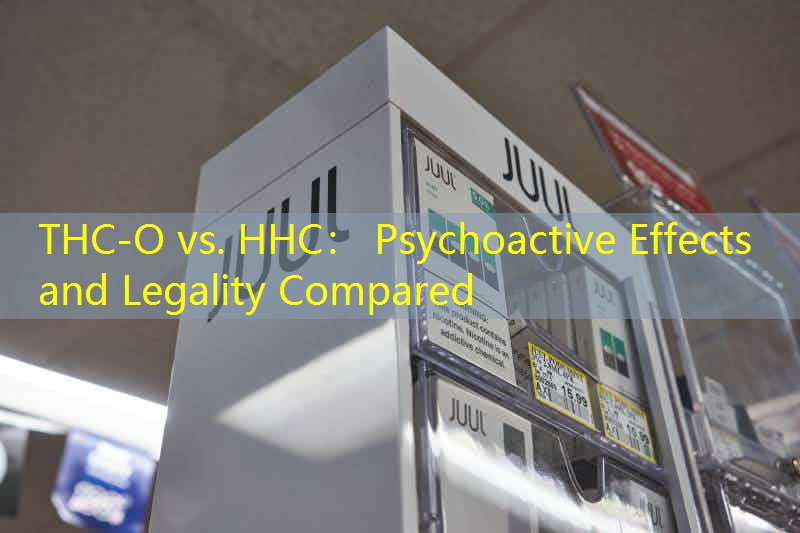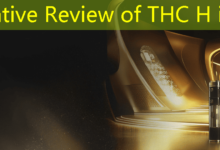Introduction
As the cannabis industry evolves, new compounds are continuously emerging, each with its unique properties and legal status. Among these, THC-O and HHC have garnered attention for their potential psychoactive effects and the legal gray areas in which they exist. Understanding the differences between these two cannabinoids is crucial for consumers, researchers, and industry stakeholders alike. This article compares THC-O and HHC in terms of their psychoactive effects and legality, providing insights that can guide informed choices.
What is THC-O?
THC-O, or THC-O-acetate, is a synthetic derivative of THC (tetrahydrocannabinol), the primary psychoactive compound found in cannabis. While THC-O is not naturally occurring in cannabis plants, it is derived chemically from THC. Users report that THC-O provides an amplified psychoactive experience, purportedly delivering effects that are three times stronger than traditional THC. It is often consumed in the form of edibles, oils, or vaporizers, making it accessible to a wide audience.
The Psychoactive Effects of THC-O
The effects of THC-O are characterized by their potency, leading many users to describe experiences of heightened euphoria and deep introspection. Anecdotal reports suggest that THC-O has a more profound impact on the mind and body, with potential therapeutic benefits for conditions such as anxiety and chronic pain. However, due to its strength, users are advised to approach THC-O products with caution. It is important to note that scientific research on THC-O is limited, which can leave some aspects of its safety and efficacy uncharted territory.
What is HHC?

HHC, or Hexahydrocannabinol, is another cannabinoid that claims the interest of many in the cannabis community. Unlike THC-O, HHC can naturally occur in cannabis, although in very small amounts. Like THC-O, HHC is also synthetically derived, but its molecular structure closely resembles that of delta-9 THC. This similarity suggests that HHC may offer similar effects to traditional THC but with unique nuances.
The Psychoactive Effects of HHC
Users of HHC often describe effects comparable to those of delta-9 THC, making it a potent alternative for cannabis enthusiasts. Some report experiencing a more balanced high, which can include relaxation and mild euphoria without overwhelming psychoactivity. The effects can vary widely depending on the product and dosage, and users have noted that HHC can also have sedative properties, making it suitable for evening use or winding down after a hectic day.
Legality Comparison: THC-O vs. HHC
The legal status of both THC-O and HHC is not straightforward. THC-O exists in a legal gray area in many jurisdictions, primarily because it is derived from THC and can be classified as a synthetic cannabinoid. This raises concerns about legality under various state laws that target synthetic drugs.
In contrast, HHC is often seen as more legally ambiguous, largely because it is derived from hemp, which was legalized in the United States under the 2018 Farm Bill. As such, products containing HHC may legally circulate, though the legality can still vary by state and local regulations.
Case Studies and User Experiences
A recent survey conducted among users of THC-O and HHC revealed distinct preferences and varied experiences. For example, participants who favored THC-O highlighted its intense effects and potential for creativity, often using it in social settings. In contrast, HHC users remarked on its smoother experience, with many opting for it as a way to unwind at home.
| Compound | Psychoactive Strength | Common Use Cases | Legal Status |
|———–|———————–|—————————-|———————–|
| THC-O | High (3x THC) | Social settings, creativity | Legal gray area |
| HHC | Moderate | Relaxation, nighttime use | Generally more legal |
Understanding the nuances of each cannabinoid can better inform consumers which product aligns with their preferences and intended usage.
Conclusion
As the cannabis landscape continues to evolve, THC-O and HHC represent two interesting facets of cannabinoid use, each with distinct psychoactive effects and legal considerations. By weighing their strengths and legal implications, consumers can navigate their options more effectively. While the journey of cannabinoid exploration may be personal, informed decisions lead to richer experiences.








